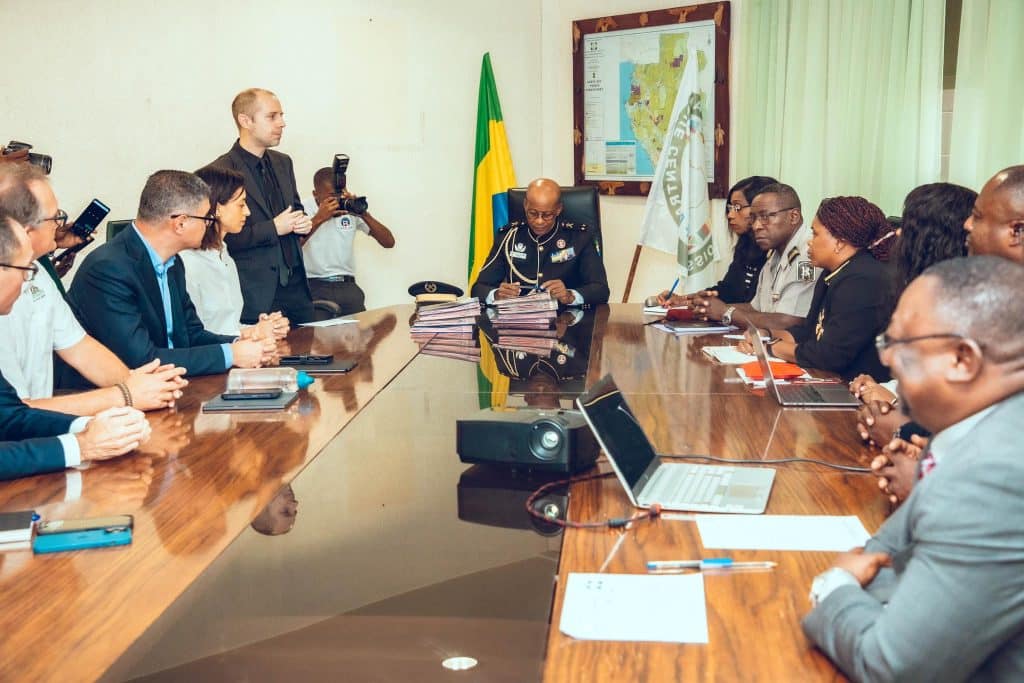The memorandums of understanding signed on Friday 1 March 2024 between the Gabonese government, civil society and three forestry companies are part of Gabon’s forestry policy, which aims to achieve sustainable management of forest ecosystems and promote forest management certification systems. They also provide for the setting up of wildlife brigades to combat poaching and illegal activities in the peripheral areas of the Ivindo and Minkebe national parks, as well as in various forest management units (FMUs) and forest concessions managed by the companies concerned.
Gabon’s Minister of Water and Forests, Brigadier General Maurice Ntossui Allogo, stressed the importance of sustainable forest and wildlife management in preserving ecological services and the health of ecosystems. He highlighted the threats to economic development and national security posed by poaching and the illegal trafficking of animal species.
The Executive Director of the non-governmental organisation (NGO) Conservation Justice explained that these wildlife brigades, set up under public-private partnerships (PPP), are funded by the European Union and the Deutsche Gesellschaft für Internationale Zusammenarbeit (GIZ). He stressed the importance of collaboration between the various stakeholders in preserving biodiversity and combating climate change.
Read also-GABON: A model in terms of forest preservation, Libreville receives $17 m from CAFI
The Managing Director of Rougier Gabon affirmed his company’s commitment to preserving the environment and natural resources. He stressed the need to work with stakeholders to enhance biodiversity and prevent its extinction, in line with the company’s corporate social responsibility principles.
The two-year PPPs demonstrate the commitment of Gabon and its partners to promoting sustainable management of natural resources and protecting biodiversity for future generations. Gabon’s rich forest is useful not only for timber production, but also for the communities that need it for their livelihoods. It is estimated that Gabon’s forest sequesters 140 million tonnes of CO2 every year, which is more or less equivalent to the amount produced by 30 million cars.
Boris Ngounou
